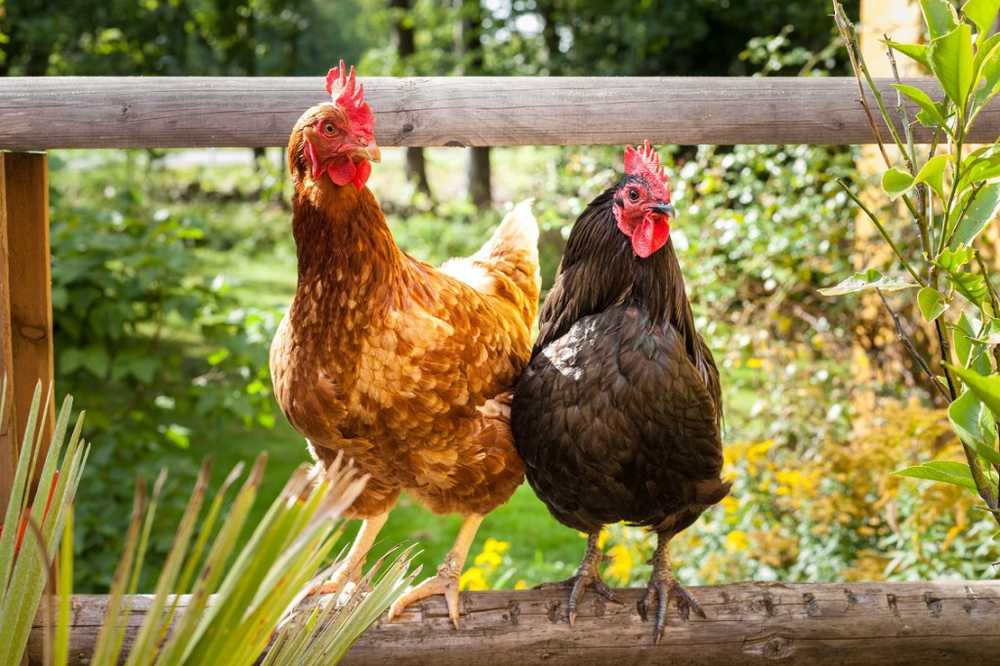Second-Use Chicken Mensa menu with special chicken for animal welfare

It only takes five seconds, but it shocked tens of thousands of people: In a video posted on YouTube, you can see little chicks being shredded by machine. These and other shots of tortured or killed animals cause some people to lose their appetite for meat. The University of Veterinary Medicine Hannover has now started a project for more animal welfare.
Shots of crammed animals
Various food scandals in recent years and images of crammed animals in mass stalls have spoiled the appetite for meat for some people. About ten percent of Germans are flexitarians, so they temporarily forgo meat. The University of Veterinary Medicine (TiHo) Hannover will do more for animal welfare. As the news agency dpa reports, the university wants to prevent the annual shredding of millions of male chicks.

Tens of millions of chicks are shredded
According to the information, the so-called second-use chicken is the focus of her project. It is said that the female animals in this breeding line can be used as laying hens and the male ones for meat production. It was also common before the industrialization of animal husbandry. But for about 50 years there was no use in the laying hen breeding for male chicks: Each year, about 45 million of them shredded shortly after hatching. According to the will of the Federal Government, this should be over by 2017.
Animals as animal feed
In the project in the capital of Lower Saxony, the scientists compare the dual-purpose chicken with a conventional breeding line on their teaching and research goods. The project of TiHo and its partners is funded by the federal government with 1.8 million euros. As the dpa message states, hens have either been bred to lay extra eggs or to eat a lot of meat. "In chickens that were bred for egg production, the male animals have no direct benefit for the consumer, as they can neither lay eggs nor provide sufficient meat," explained TiHo President Gerhard Greif. "That's why they are killed shortly after hatching and used as animal feed."
Antibiotics in the chicken fattening
One hope of the researchers is that the slower growing dual chickens have better defenses and are thus less susceptible to disease. Consumers and animal rights activists have been criticizing the use of antibiotics in fattening for years. According to research, fattening chickens are given antibiotics every four days. In addition, the animals in the new project will not be cut off the beaks, as is common in laying hens, to prevent cannibalism. "It is important to get feedback from the consumers," says project manager Silke Rautenschlein. The scientists therefore brought the Studentenwerk Hannover on board. In nine cafeterias of Hannover, roast chicken will be offered by Forschungsgut in the coming weeks and the cafeteria visitors will be asked about their impressions.
Chicken from new project much heavier
According to the news agency, chickens are slaughtered in conventional fattening after about 33 days, but the first dual chickens had 75 days to grow. That's why half of the roast chicken weighs a whopping 800 grams, with a meat content of 51 percent, while the usual half rooster weighs 450 to 500 grams, but with 65 percent meat. "It is a very exclusive animal. I rather see his future as a roast chicken for the whole family, not necessarily in a canteen ", said the director of the research project Ruthe, Christian Sürie.
Do without animal products
For the poultry industry, the two-purpose chicken seems at first less attractive, because the hens lay fewer and smaller eggs and the cocks must be fattened longer. The scientists now want to examine whether consumers would also pay higher prices for more animal welfare. There is already a similar initiative in organic farming called "Bruderhahn". For those who care about the animal's welfare, they simply do without animal products. Also for that a lot is done at German universities. The animal welfare organization Peta awards every year the vegan-friendly cafeteria. Last year, the Studentenwerke Augsburg, Berlin, Dusseldorf, Munich and last year's winner Erlangen-Nuremberg ended up in fifth place. (Ad)


